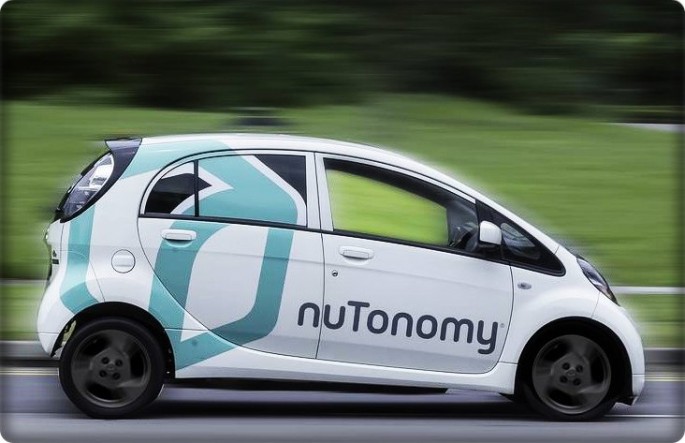Self-driving taxis hit Singapore's streets on August 25, Thursday in the first stage of the robot taxi project to reduce the number of vehicles on Singapore's crowded roads. The new program is the world's first taxi service that features autonomous vehicles (AV) and allows customers to hail a cab by using their smartphones to get a free ride. Google has racked up over 1.5 million miles testing driverless cars but startup nuTonomy claims its Renault and Mitsubishi vehicles will feature the world's first AV rides offered to the public.
The new service will begin with six cars. nuTonomy plans to expand the program to a dozen cars by the end of this year. Modified Renault Zoe and Mitsubishi i-MiEV electric vehicles (EV) will be used for the program.
Each vehicle is equipped with a detection system that works like radar. Two cameras on the car's dashboard also scan the road for objects to avoid, and pick up traffic lights, according to RT.
The Singaporean startup hopes to have a full fleet of robot taxis by 2018. It also plans to expand the business model to other major cities around the world.
At first the startup's program will cover a 2.5-square mile (6.5-square km) area and be limited to certain locations. Riders who use the service must also receive an invitation from nuTonomy to get their free taxi rides.
The cars will have a human driver who can take over the wheel in emergency situations. Meanwhile, a researcher will sit in the back seat to monitor the smart car's computers.
Doug Parker is nuTonomy's chief operating officer. He told AP that the robotic taxis could slash the 900,000 cars on Singapore's roads by one-third.
However, public transportation workers including taxi drivers are concerned that the AVs could boost the unemployment rate and hurt the national economy. The self-driving taxis can reduce traffic, pollution, and accidents. They could also affect the livelihood of millions of cab drivers around the world.
In related news, Uber recently announced its self-driving pilot program that will include a fleet of 100 AVs in Pittsburgh by the end of this month, according to The Australian Financial Review. The Steel City gets 41 inches (104 cm) of yearly snowfall and has over 400 bridges, which will create many challenges during the road tests.
Human test subjects will use smartphones to summon the driverless cars.
Here's the top self-driving cars of 2016:



























